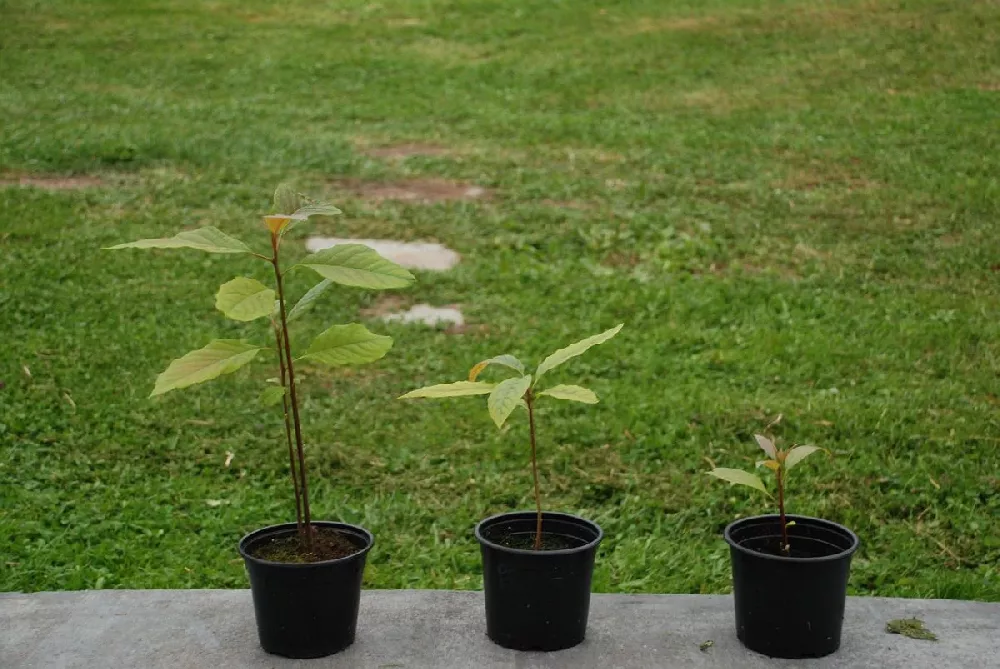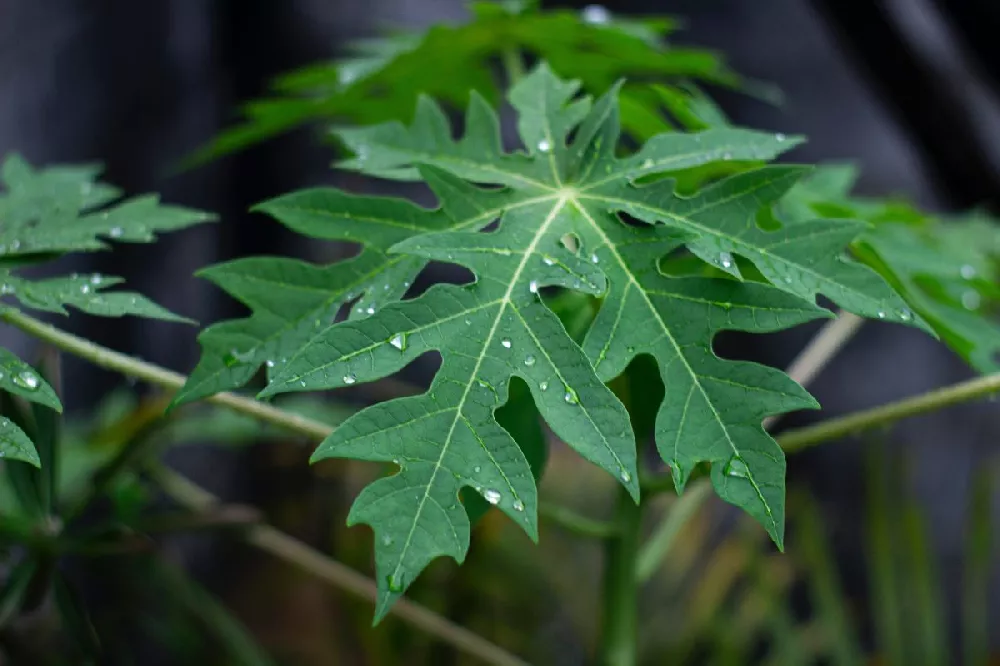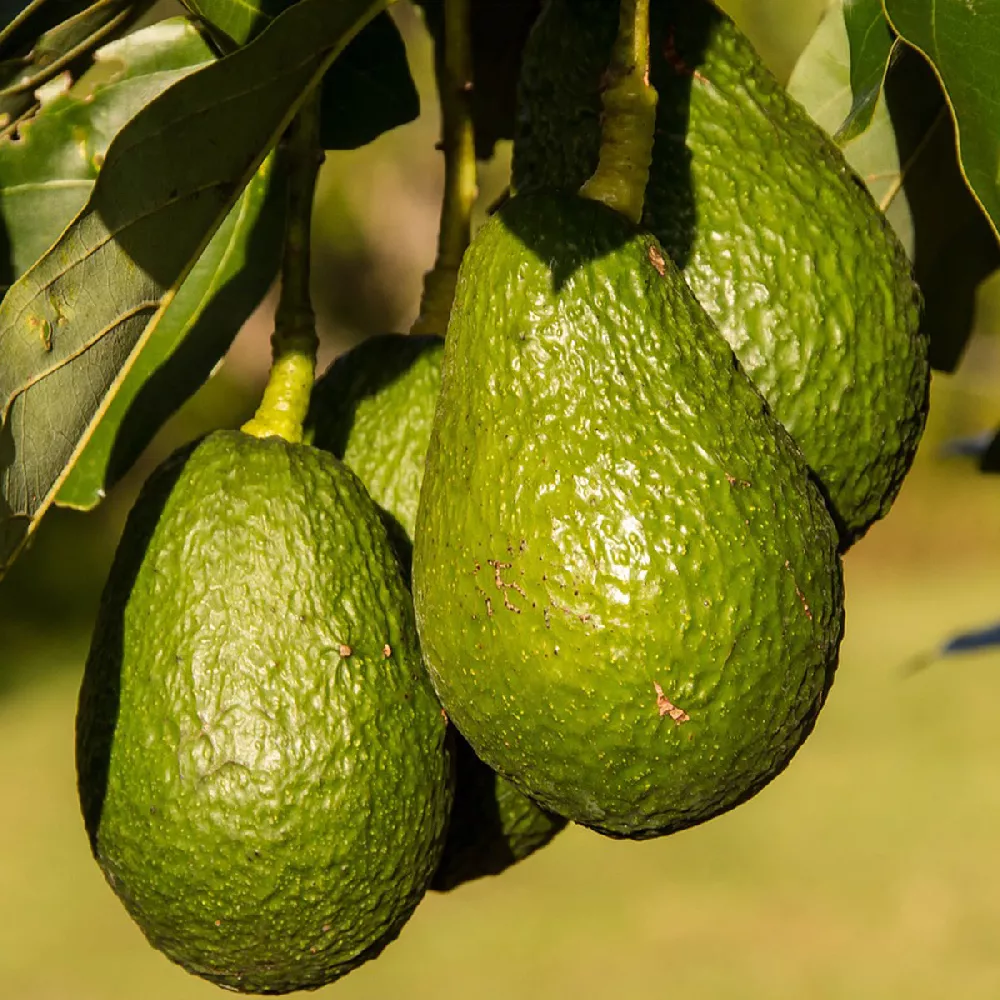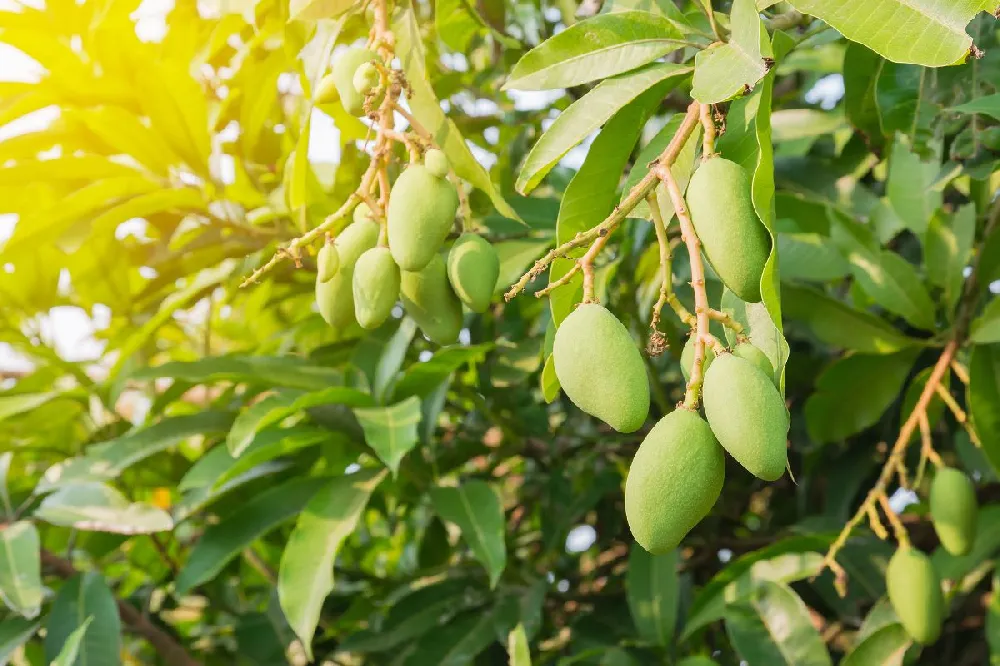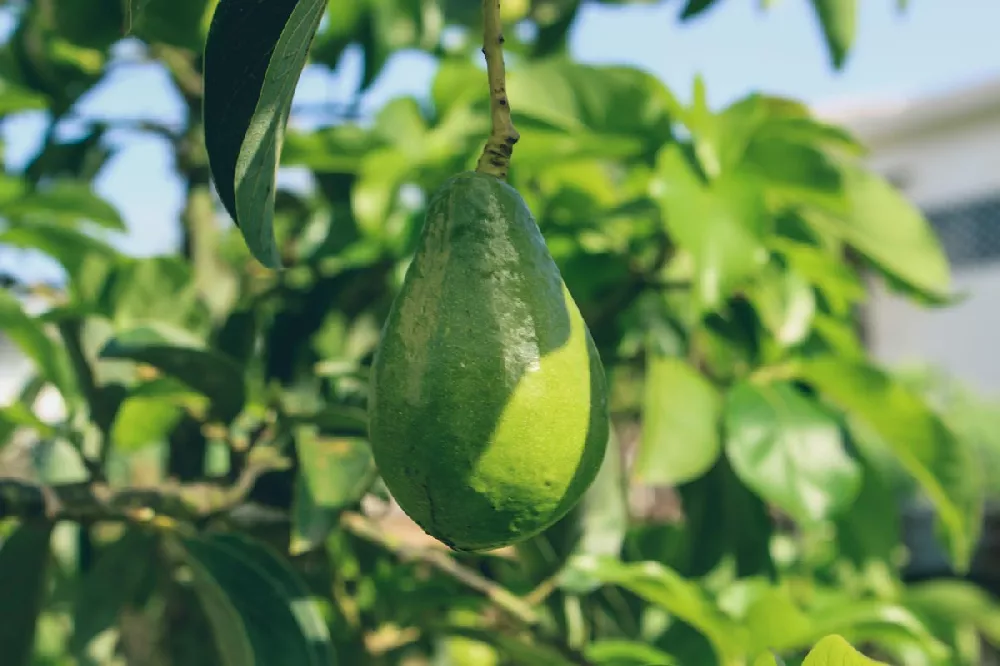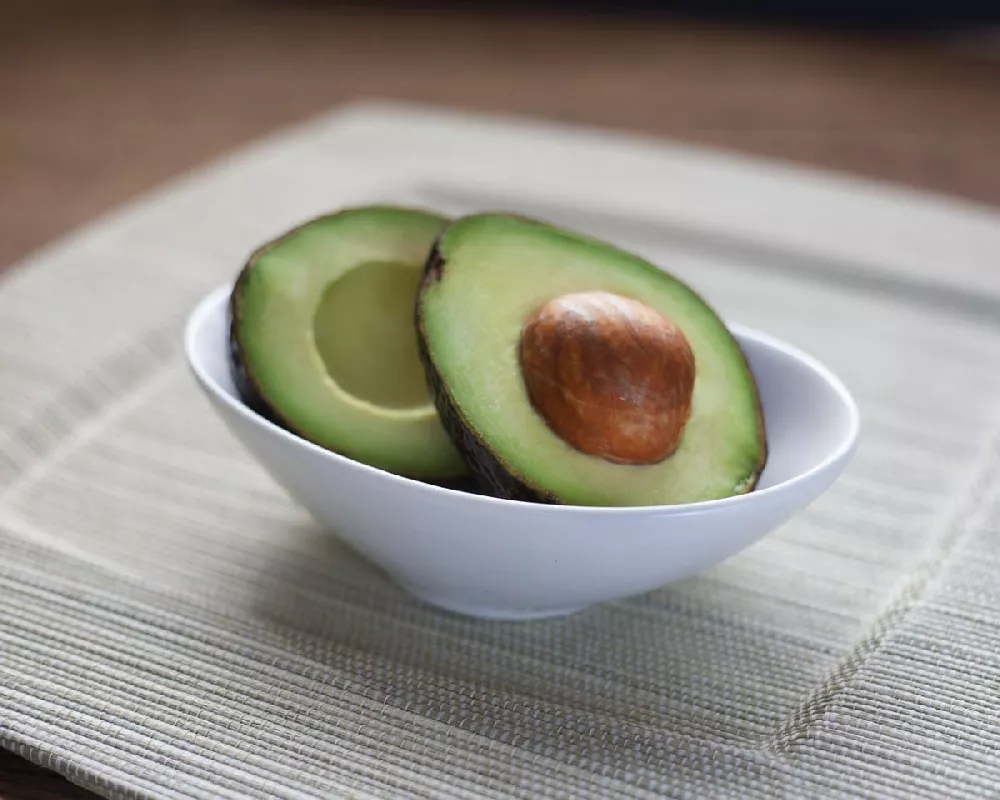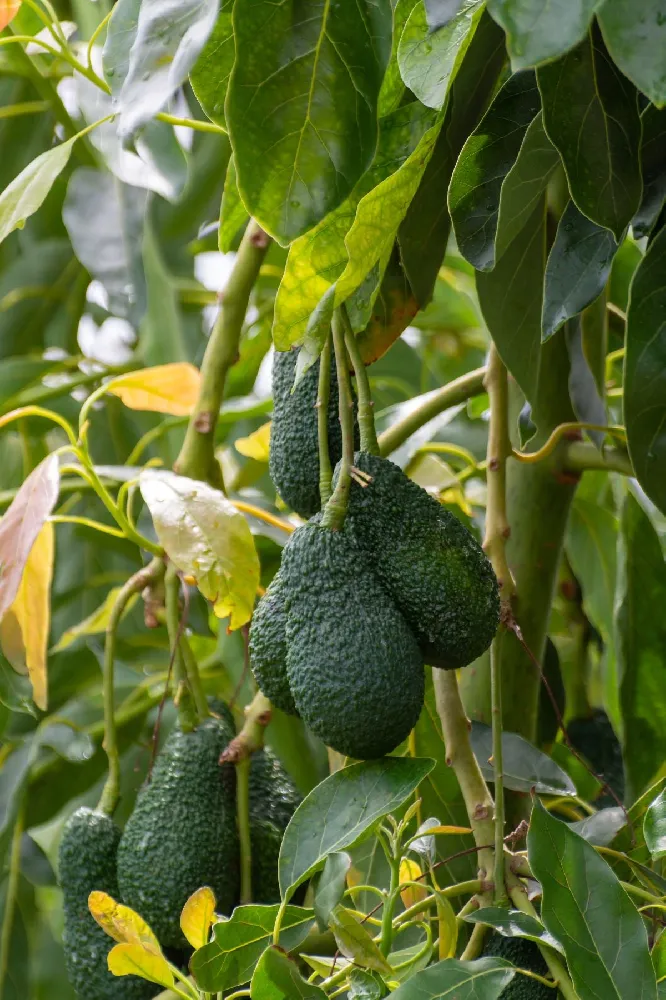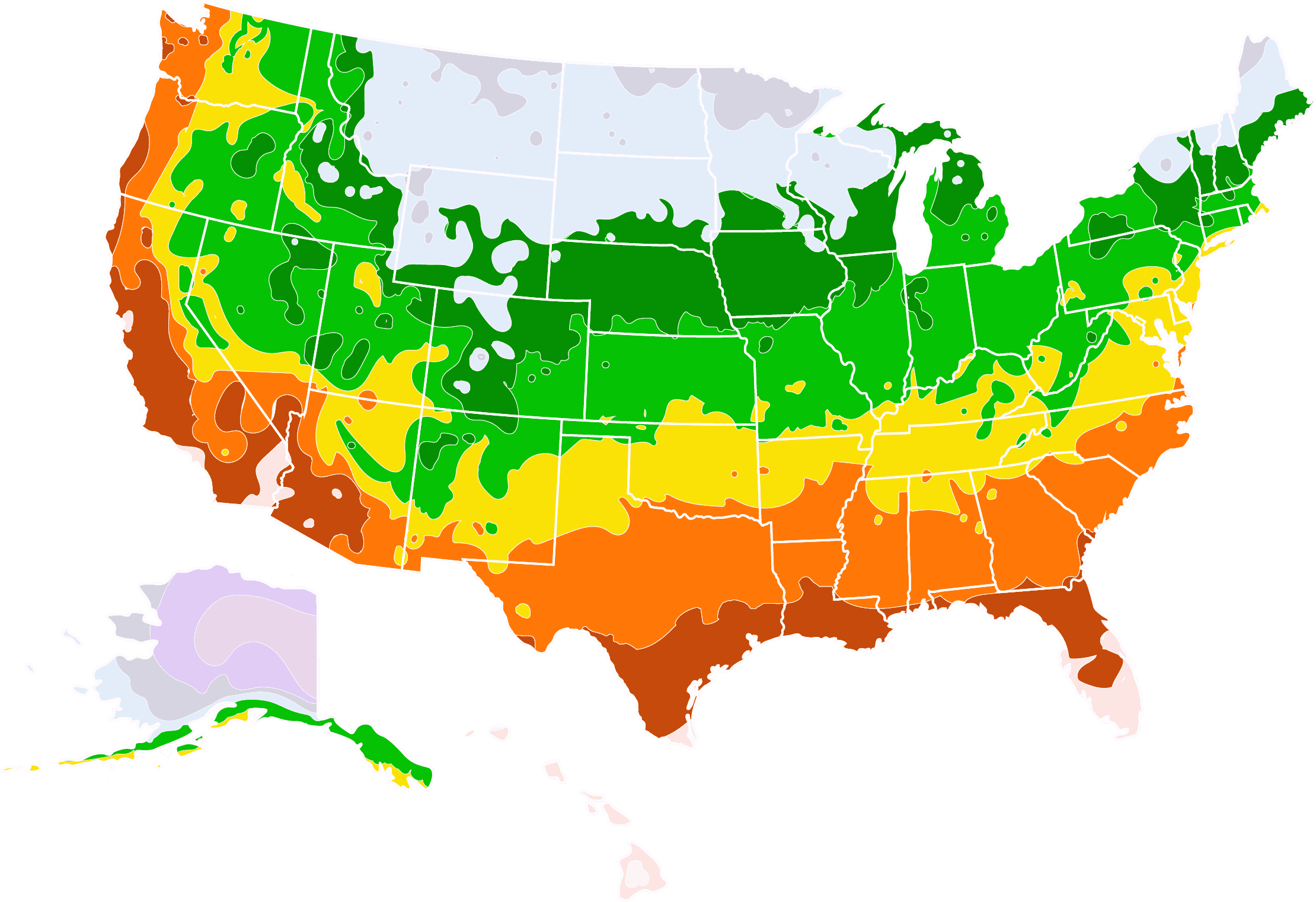- Home >
- Fruit Trees >
- Smoothie Kit
Smoothie Kit for Sale - Buying & Growing Guide
The smoothie kit is unlike any other set of plants that you've come across. As the name suggests, this plant package gives you the perfect ingredients to make a healthy and tasty smoothie once the harvests arrive. The smoothie kit includes a Hass Avocado, Persea americana 'Hass,' a Dwarf Cavendish Banana Tree, Musa acuminata, a Glenn Mango, Mangifera indica 'Glenn,' and a papaya tree, Carica papaya 'Red Lady,' all of which are lovely fruiting plants in their own right.
- The smoothie kit will give you all the ingredients you need for a smoothie.
- Many of the plants in this kit can grow in containers.
- The smoothie kit includes some of the healthiest and best-tasting fruits in the world.
Enter your zip code to find nearby stores that may carry this plant.
Plant Care
Sunlight

The plants in the smoothie kit should grow in areas of full sun, but some may tolerate partial shade.
Watering
The water needs of the plants in your smoothie kit can vary, but most need water at least weekly.
Fertilizing

Each plant in the smoothie kit has unique fertilization needs.
Planting and Care
Planting instructions
Since the four plants in the smoothie kit thrive best in warm-weather climates, many gardeners throughout the United States will need to overwinter these plants. Fortunately, each of the smoothie kit plants is small enough to live in a container. It’s best to select a container that is significantly wider than the root ball of the plant that will go into it. The container should also have great drainage. It’s important for most of your smoothie kit plants to receive full sunlight each day or at least partial shade.
Watering and nutrients
It is safe to assume that you’ll need to water each plant in your smoothie kit often enough just after planting to maintain consistent soil moisture while the plants establish themselves. After establishment, the water needs of each plant will vary, but most will need water about twice per week to once every two weeks. The best way to give your plants the moisture they need is to study their individual needs. The same is true regarding fertilization. When in doubt, you can apply an all-purpose fertilizer or an organic soil amendment at least once per year.
Pollination
While understanding the water and fertilization needs of each plant in your smoothie kit will take some time, the pollination process is a bit more straightforward. Fortunately, all four of the plants in the kit are capable of developing fruits without the need for a companion pollinator plant. However, since you’ll likely need to grow these plants indoors for a significant portion of the year, where there are little to no natural pollinators, you should be ready to perform hand pollination for all plants but the dwarf cavendish, which produces its fruits without the need for pollination.
Pruning
The pruning needs of each smoothie kit plant will differ from one another. For instance, it’s best to prune your Hass Avocado during the early spring, while the Glenn Mango Tree responds best to post-harvest pruning. For your papaya tree, focus on removing shoots that appear at the base of the plant and don’t contribute to the overall structure. For your Dwarf Cavendish Banana Tree, you can remove whole leaves when they appear damaged or spent. After this plant produces fruits, you can cut its stalk to the ground so that a new fruit-bearing stalk can emerge.
Pests, diseases and animals
All four of the fruiting plants in the smoothie kit can be vulnerable to multiple pests and diseases. However, one benefit of growing these plants indoors for much of the year is that there will be fewer opportunities for insects to infest them. The best way to lessen the odds of pest and disease issues for your smoothie kit is to plant these plants in locations that meet their growing requirements. Following a proper maintenance routine and remaining vigilant for infections and infestations will also help keep your smoothie kit at its healthiest.
Harvesting
Each plant in the smoothie kit will have a unique harvest time. For the Dwarf Cavendish Banana Tree, it takes about 12 to 18 months for a banana bunch to form. The Hass Avocado Tree is typically ready for harvest anytime between mid-summer and late fall. The Glenn Mango Tree can also have a large harvest window that stretches from May to September. The papaya tree in your smoothie kit will also have a varying harvest that will take place at some point in summer or fall.
Achieving maximum results
Since each plant in your smoothie kit has requirements, it is important to study each one’s needs before you plant this kit. One of the most crucial factors during planting is size. Choose containers that are suited to your plants’ current sizes and capable of allowing the root systems of your plants to expand. Again, you should take time to learn the unique water and fertilization needs of each plant, as they can vary slightly from one another. Through enough preparation, you can ensure that each of these four plants lives a healthy and productive life.
FAQs
Are the plants in the smoothie kit cold-hardy?
While the plants in the smoothie kit are all unique in many ways, each one tends to have the same degree of cold hardiness. These four plants are all typically capable of surviving outdoors year-round wherever the temperature remains above 20 degrees Fahrenheit. Anyone living in a region colder than that will need to overwinter the smoothie kit.
Is the smoothie kit difficult to care for?
Since each plant in the smoothie kit has a distinct set of needs, it can take some time to get used to caring for them. The best approach is to take time to get to know each plant before planting it. Once you have a clear idea of how much sun, water and fertilization each plant needs, you should not have too much difficulty maintaining them.
What is the largest plant in the smoothie kit?
The plant that has the potential to grow the largest in the smoothie kit is the Glenn Mango Tree. At times, this plant can reach a mature height of 30 feet tall. However, it is often much smaller when it grows in a container. The same is true of the other plants in the kit. In most scenarios, none of the plants in the smoothie kit will surpass 15 feet tall if you grow them in containers.
Compare Similar Products
You can't add more Product Name - Product size to the cart.
OK